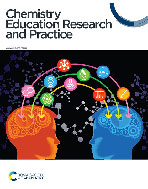Pre-service chemistry teachers’ pedagogical content knowledge for integrated STEM development with LESMeR model
Abstract
This study aimed to examine pre-service teachers’ (PST) personal and declarative pedagogical content knowledge (PCK) for integrated science, technology, engineering, and mathematics (STEM) through a 13 week training course. A new model based on research-based practices was proposed. The model includes Learn, Experience, Study with Mentors, and Reflection on own development and learning, and the acronym LESMeR has been coined as the name for this model. The data were collected through Content Representation (CoRe) as pre- and post-lesson plans, semi-structured interviews conducted after the training, and reflection papers written on a weekly basis. Inductive and deductive data analyses were employed. Results revealed that all participants started the training with a topic-specific PCK (PCK A). None of the participants’ pre-CoRe included essential features of integrated STEM. However, after the training, eight participants were able to balance among STEM disciplines, and integrated at least two STEM disciplines; this was coded as PCK for integrated STEM (PCK C). Five PSTs showed PCK for integrated STEM development to some extent but they were unable to achieve balance among STEM disciplines; this was coded as transitional PCK (PCK B). Results revealed that PCK for integrated STEM development requires considerable time and support. Implications are provided for integrated STEM education.


 Please wait while we load your content...
Please wait while we load your content...